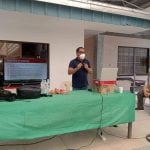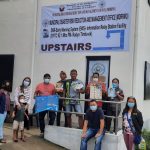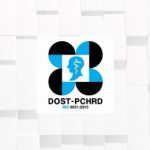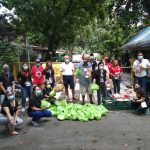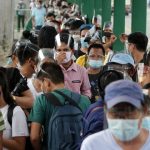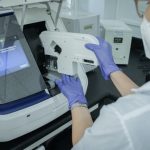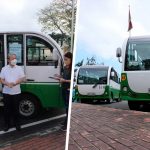Over 60 vendors and business owners registered in the training that was specifically designed for micro-organizations and small business owners, particularly in their understanding of taxation and compliance with tax authorities. A public address system was utilized to allow other business owners to listen to the discussion while they remained in their respective stalls and allowed social distancing while a number joined via the Zoom application as an observance to the Covid-19 protocols.
Category: NEWS & EVENTS
UP Open University, UPOU Foundation Inc., and Digital Freedom Network team up to bring you the Certificate Course for Data Protection Officers.
The COVID-19 Storybook for children in small islands is entitled “Si Yanila kag ang Gataw (Yanila and the School of Fish).” It draws largely from indigenous knowledge systems as a means of coping with the COVID-19 pandemic. Interwoven in the development of the character and the story are traditional games, folklore, indigenous food preservation practices, traditional environmental knowledge, and customs. It also covered advocacies on pandemic preparedness, health, nutrition, and food security. More importantly, Yanila is meant to inspire children with her innate desire to learn and be of help to her family at this time of crisis.
To boost election reporting in the age of digital media, the University of the Philippines through the College of Mass Communication/Journalism Department will conduct The Philippines Elections Workshop Series for newsroom editors and journalists, with a focus on data-driven stories, website and social media tracking.
The workshop series will offer new media skills for election coverage — from finding ideas on Google Trends, producing data-driven stories, conducting investigations on political ads, to producing your newsroom’s best election coverage on YouTube. These workshops aim to offer a breadth of new skills to fully equip journalists before polling day.
A new testing kit to check for coronavirus disease 2019 (Covid-19) infection is expected to be developed by May, according to the Department of Science and Technology (DOST).
DOST Secretary Fortunato de la Peña said the new kit will be a cell-based immunoassay for serologic testing.
Kamakailan ay dinagdagan ng DAMAYAN ng All UP Workers Union Diliman Chapter (AUPWU-Diliman) ang ayudang kanilang ibinibigay sa mga nangangailangang UPD personnel.
Napagpasiyahan ng unyon na palawakin ang tulong sa pagbibigay ng mga pagkain tulad ng mga prutas at gulay, bukod sa mga gamot, pati na rin ng mga grocery item sa mga kawaning higit na kapos.
Dr. Teodoro J. Herbosa, advisor of the National Task Force for COVID-19, called on the private sector to help through campaigns such as Resbakuna sa Botika, in which vaccines are administered in pharmacies.
He added that the DoH is developing a mechanism of self-reporting of tests, given that many Filipinos have been resorting to antigen testing at home. However, this will take some time as there is “lots of complexity in the self-reporting system,” mainly the question of test quality and accuracy.
Initiated in 2019, Tsek.ph is a project of the UP System, under the Office of the Vice President for Public Affairs through the UP-CMC Journalism Department serving as a collaborative fact-checking network, which at the time united three academic institutions and 11 media partners as a public service commitment to counter disinformation.
The Philippine Genome Center Visayas has already received its set of Next Generation Sequencers to capacitate the center for whole genome sequencing to detect SARS-CoV-2 variants in the region. PGC Visayas acquired the sequencers through the funding support of the Department of Budget and Management. Installation of the sequencers commenced last Thursday (Jan. 20) at the PGC Visayas Laboratories at the Regional Research Center of UPV in Miagao, Iloilo
UPLB in partnership with the Municipal Government of Los Baños and the Samahan ng Nagkakaisang Drivers at Operators ng Los Baños (SNODLOB) Transport Service and Multi-purpose Cooperative launched today the modern electric jeepneys to ply between the Los Baños town proper and the UPLB campus.

